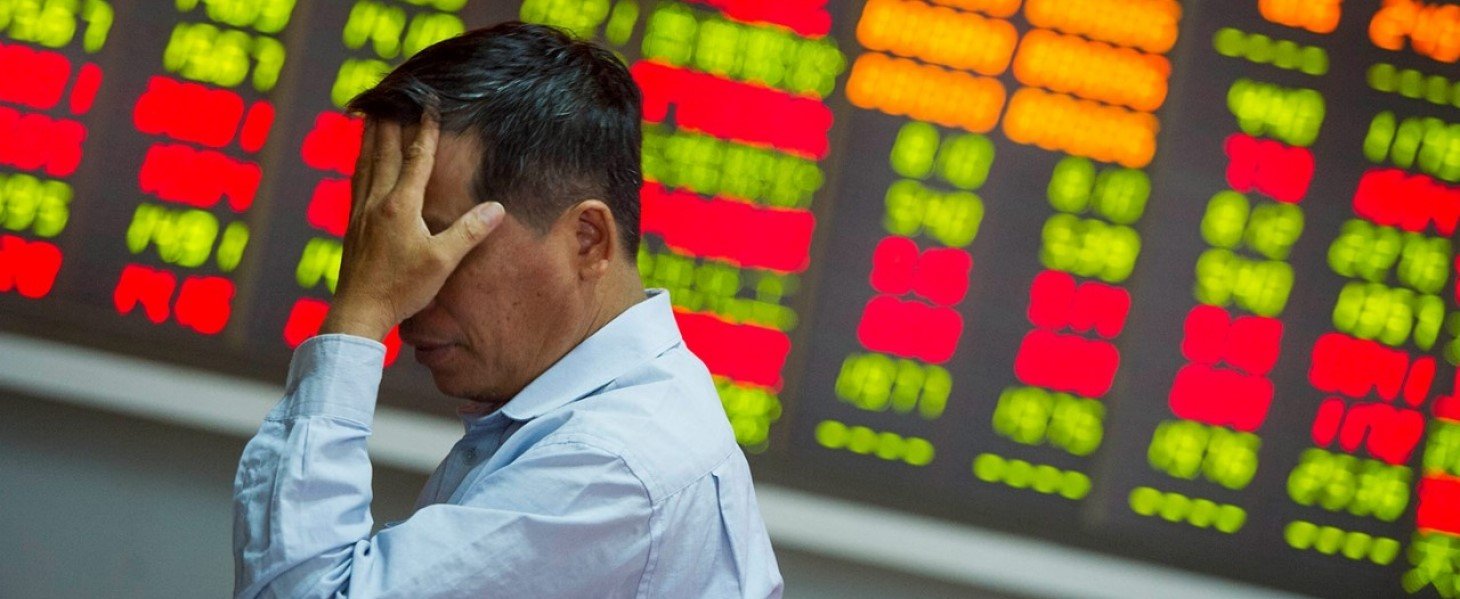

Jan
Whether we are referring to “maturing” jurisdictions such as China or mature ones such as various Western jurisdictions, it is a quasi-axiomatic statement that one cannot have a man-made financial system without occasional financial panics. From bank depositors who are standing in line in a desperate attempt to withdraw while they still can to investors who are just as desperate to liquidate their holdings, financial panics just come with the territory in a (more or less free) market environment.
Why?
Simply because we are dealing with one of the two fundamental drivers of human actions in a market setting: fear (with the other one being greed). If all market participants were robots, the “boom and bust” business cycle would not exist and financial panics would be a thing of the past. In light of the fact that we are most definitely not exactly there, we just have to come to terms with the cyclical nature of the business… well, cycle.
Should financial panics be considered systemic risk factors?
Most definitely, with there always being a probability greater than zero that one particular financial panic will represent the final nail in the coffin of that country’s financial system. Or even the global financial system, for that matter. While the opposite tends to usually be true, with countries ultimately rebounding after what seemed to be fatal financial panics, it is important to understand that past performance is not indicative of future results or in other words, that “this time it’s different” might eventually prove to be a true statement.
Should financial panics be considered a tradable opportunity
Once again, as strange as it may seem, the answer is yes.
Furthermore, those who considered financial panics tradable opportunities, buying when there is proverbial blood on the streets because they assumed the system will eventually survive have (historically speaking) done quite well. As mentioned previously, however, past performance doesn’t provide any future-related guarantees. While it is true that those brave enough to pull the trigger and buy when everyone else was panicking were generously rewarded in many cases once the financial system snapped back, it doesn’t mean this is guaranteed to happen in the future. Still, trading financial panics oftentimes presents a risk to reward ratio that can be considered quite tempting, so it would be a mistake not to at least take these trading opportunities into consideration.
Where does China stand in this entire equation?
As explained in other articles, China doesn’t have as impressive of a track record as most Western jurisdictions and as such, there are more unknowns we have to accept. Our best guess is that generally speaking, more volatility is to be expected. In other words more devastating lows but at the same time, more euphoric highs.
On top of economics-related talking points, there is also a layer of political uncertainty. What will the Communist Party of China (try to) do to stem panic? How is the general public likely to react? Where does this leave investors in general and Western investors in particular? While we just do not know at this point, wise investors do need to understand that comparatively more difficult times than with Western jurisdictions would most likely be ahead of them in such situations.
And, indeed, most Western investors believe just that. For this reason, as outlined in other ChinaFund.com articles as well, China is still perceived as a “risk on” jurisdiction despite being the world’s #2 economy in nominal terms. The implications of this are fairly straightforward, with most Western investors likely choosing to exit “all things China” in a financial panic scenario and instead, rushing toward “risk off” or let’s say safe haven jurisdictions, especially the United States.
Ironically, this will most likely even happen if the financial calamity that triggered the panic had its origins in the United States. Relatively recent history provides some guidance in this respect, with the Great Recession of 2007-2008 having the US as its epicenter (especially the infamous US Mortgage-Backed Securities), yet more damage being done to other jurisdictions (risk on ones, of course) than to the United States.
Is this modus operandi set in stone?
Of course not. As with all things human nature-related, the status quo modus operandi works… until it doesn’t. Eventually, the United States might no longer be considered a safe haven jurisdiction and the same way, China might end up being preferred instead. While not tremendously probable at this point in time, it is most definitely possible and needless to say, those who viewed the preceding Chinese panic as a tradable opportunity and stocked up on Chinese assets would end up being more than generously rewarded in such scenarios.
In a nutshell, this is how the ChinaFund.com team views the possibility (probability) of financial panics in China at this point in time. In light of our hands-on experience in China for more than 12 years, we believe we are well-equipped to constantly be on the lookout for buying opportunities, even (or especially) in the event of a financial panic.
Less experienced investors, however, would be quite vulnerable in such scenarios. If you or your organization finds the “tradable opportunity” dimension associated with potential (financial) panics in China appealing but are not experienced enough to place a high degree of confidence in your expertise, the ChinaFund.com team is here to help. Simply reach out and together, we will put together a mutually beneficial plan with respect to the Chinese dimension of your business and/or investment model.
